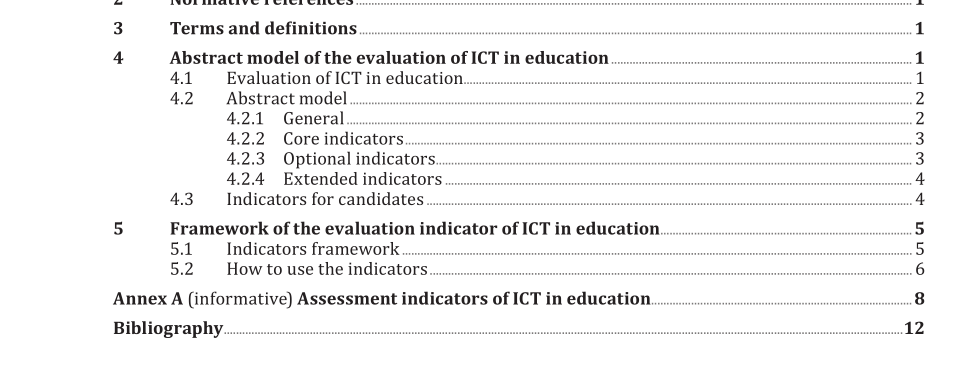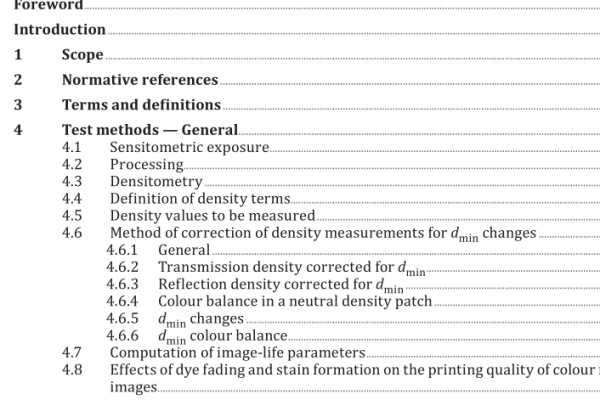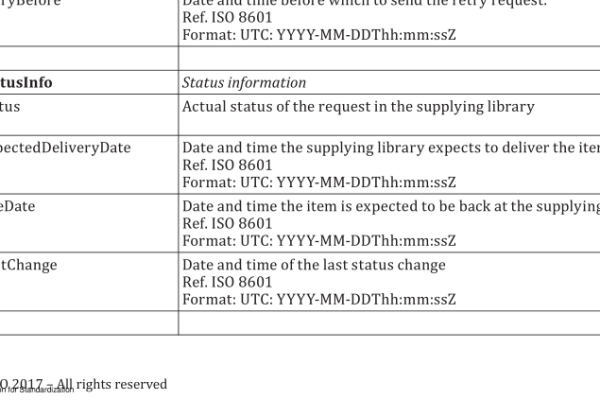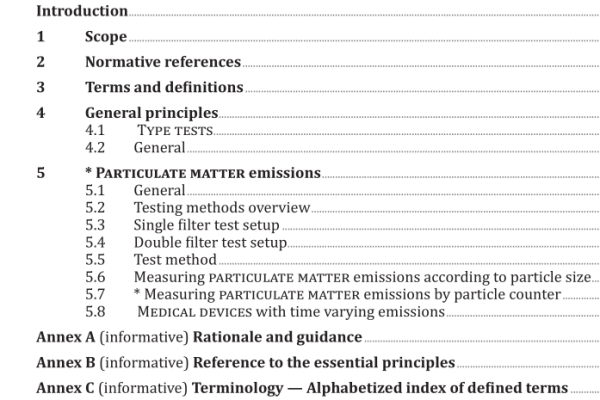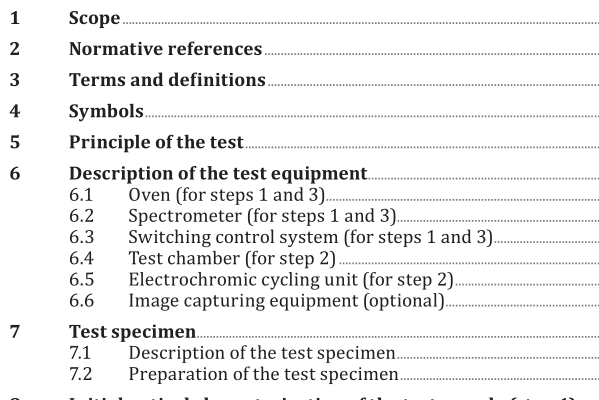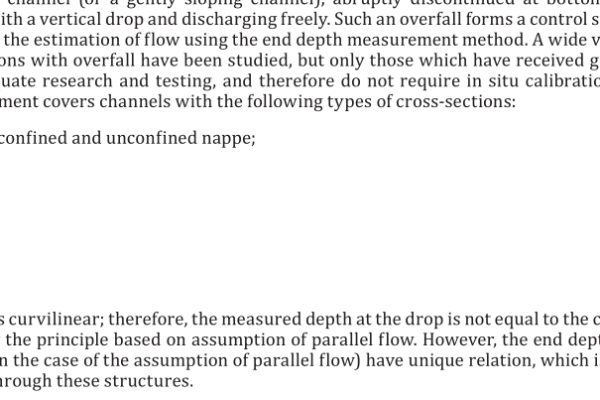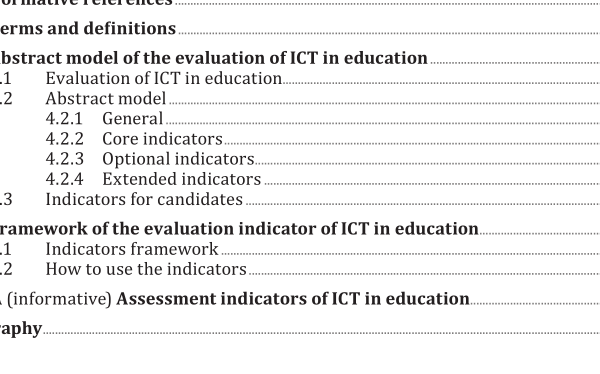ISO IEC TR 4339:2022 pdf download – Information technology for learning, education and training — Reference model for information and communications technology (ICT) evaluation in education.
1 Scope This document defines an abstract model and an indicator system framework for the evaluation of information and communications technology (ICT) in learning, education and training (LET). The abstract model accommodates requirements domains, including K12 education, vocational education, higher education and continuing education. The framework describes ICT service levels in the areas of learning, education and training, and aims to assist in quality processes associated with ICT in LET contexts. 2 Normative references There are no normative references in this document. 3? Terms? and? definitions For the purposes of this document, the following terms and definitions apply. ISO and IEC maintain terminology databases for use in standardization at the following addresses: — ISO Online browsing platform: available at https:// www .org/ obp — IEC Electropedia: available at https:// www .electropedia .org/ 3.1 indicator quantitative, qualitative or descriptive measure 3.2 performance way in which an individual, group or organization carries out, accomplishes and fulfils its important functions and processes, usually with regard to effectiveness 3.3 evaluation systematic determination of the extent to which an entity meets its specified criteria 4 Abstract model of the evaluation of ICT in education 4.1 Evaluation of ICT in education Evaluation of ICT in education refers to the use of information technology and scientific performance assessment methods to reflect the development process and level of the implementation, execution, benefits or other aspects scientifically according to the goals and performance standards of ICT in education. The definition of evaluating indicators is beneficial in analysing the situation, achievements and limitations for the development of ICT in education.
4.2 Abstract model 4.2.1 General Figure 1 represents an abstract model framework of ICT in education, which contains core indicators, optional indicators and extended indicators. This abstract model contains three types of indicators which consider the regional differences and cover all types of education at all levels. The abstract model follows these three principles: i) Scientificity: The indicator system is mainly used to evaluate and guide the development plan and policy of ICT in education. The indicators need to follow the development rule of ICT in education and analyse each irreplaceable index comprehensively and systematically to avoid repetition and contradiction. ii) Operability: It is important to consider the necessity of certain indexes and the convenience of collecting data. The connection of existing statistics and the data for the evaluation is beneficial for the reduction of cost to collect corresponding information correctly and in a timely manner. iii) Sustainable development: The development of ICT in education is a dynamic process involving multiple stakeholders. The indicator system is iterative and provides direction for the development of ICT in education. As such, it is responsive to change according to the need of practice.
ISO IEC TR 4339:2022 pdf download – Information technology for learning, education and training — Reference model for information and communications technology (ICT) evaluation in education
